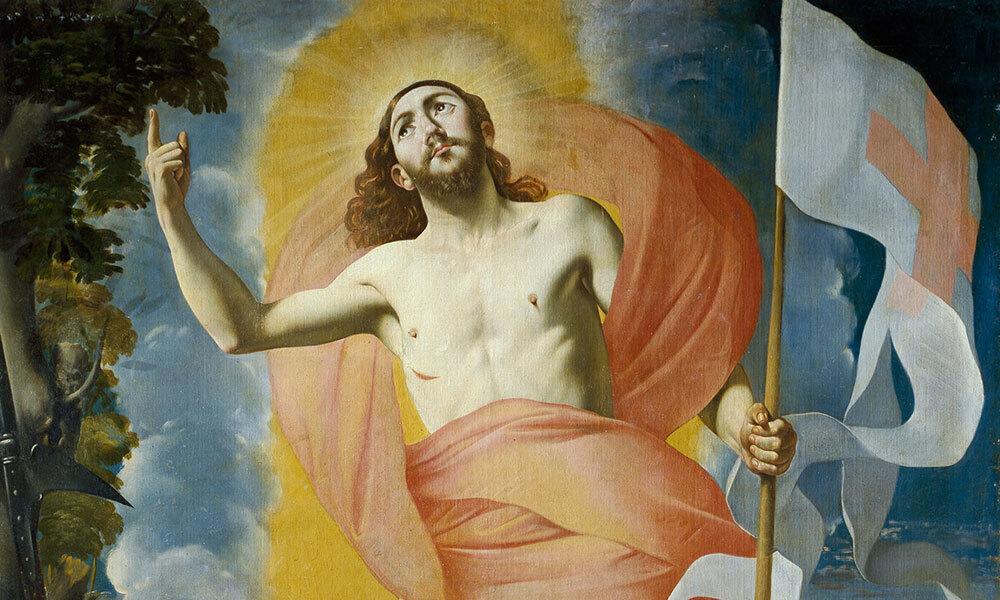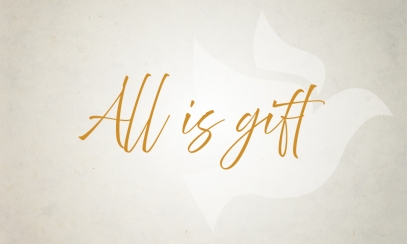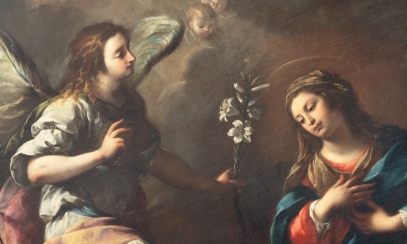
The 8th Day
Keeping Sunday Sacred
Keeping Sunday Sacred
A Letter by Bishop Earl Boyea on the Sunday Obligation
Dear Brothers and Sisters in Christ,
“We should not stay away from our assembly, as is the custom of some, but encourage one another, and this all the more as you see the day drawing near.” (Heb 10:25) While the author of this text was looking forward to the return of Jesus in glory, his advice applies also to us as we look forward to the day when we will all be able to gather in our churches. Less than 100 years after the Letter to the Hebrews was written, the martyr Justin gave the motivation for our assembling as he wrote in his First Apology (67): “We all gather on the day of the sun, for it is the first day when God, separating matter from darkness, made the world; and on this same day Jesus Christ our Savior rose from the dead.” This is the day for which we have been yearning these many months. We do not yet know when we will be freed of the limits imposed on us by the pandemic. At that point, the dispensation from the obligation to attend Mass will be ended. Even given this present uncertainty, I hope that the following thoughts may be helpful for our ongoing formation as Catholics.
The Constitution on the Sacred Liturgy (106) from the Second Vatican Council speaks to the importance of the proper observance of Sundays:
“By a tradition handed down from the apostles, which took its origin from the very day of Christ’s resurrection, the Church celebrates the paschal mystery every eighth day, which day is appropriately called the Lord’s Day or Sunday. For on this day Christ’s faithful are bound to come together in one place. They should listen to the word of God and take part in the Eucharist, thus calling to mind the passion, resurrection, and glory of the Lord Jesus, and giving thanks to God ...”
The Catechism of the Catholic Church (1166) picks up on this text and adds:
“The day of Christ’s resurrection is both the first day of the week, the memorial of the first day of creation, and the ‘eighth day,’ on which Christ after his ‘rest’ on the great sabbath inaugurates the ‘day that the Lord has made,’ the ‘day that knows no evening.’”
The catechism also notes that Sunday now “fulfills the spiritual truth of the Jewish sabbath and announces man’s eternal rest in God.” (2175) The text continues then with the obligation this imposes:
“The celebration of Sunday observes the moral commandment inscribed by nature in the human heart to render to God an outward, visible, public, and regular worship ‘as a sign of his universal beneficence to all.’ Sunday worship fulfills the moral command of the Old Covenant, taking up its rhythm and spirit in the weekly celebration of the Creator and Redeemer of his people.” (2176)
It is fascinating that the real obligation of Sunday is that we worship God. It is not primarily about receiving the Eucharist, though that indeed is a great blessing for which we prepare ourselves by belonging to the community, by sharing the faith of the Church, and by being reconciled to God and the Church and freed of our sins in the sacrament of reconciliation. This priority of the Sunday obligation is because we really do have a duty to worship God. And Jesus has given us the most perfect way to accomplish this – the sacrifice of the Mass, the renewal of his own sacrifice of his body and blood to the Father for our salvation.
Some may say that they can worship God alone. St. John Paul II addressed this in his letter Dies Domini (31): “It is not enough that the disciples of Christ pray individually and commemorate the death and resurrection of Christ inwardly, in the secrecy of their hearts. Those who have received the grace of baptism are not saved as individuals alone, but as members of the mystical body, having become part of the people of God. It is important therefore that they come together to express fully the very identity of the Church, the ekklesia, the assembly called together by the Risen Lord who offered his life ‘to reunite the scattered children of God.’” (Jn 11:52)
The Code of Canon Law (1246) notes that “Sunday is the day on which the paschal mystery is celebrated ... and is to be observed as the foremost holy day of obligation in the universal Church.” The next canon (1247) continues:
“On Sundays and other holy days of obligation the faithful are bound to participate in the Mass; they are also to abstain from those labors and business concerns which impede the worship to be rendered to God, the joy which is proper to the Lord’s Day, or the proper relaxation of mind and body.”
The code, of course, allows that a “grave cause” may make such participation impossible and thus recommends a time of prayer either alone or with family or others. (1248.2)
The catechism repeats the allowance of a justifiable excuse: “Family needs or important social service can legitimately excuse from the obligation of Sunday rest.” However, the text adds: “The faithful should see to it that legitimate excuses do not lead to habits prejudicial to religion, family life, and health.” (2185)
The catechism explains this obligation:
“Participation in the communal celebration of the Sunday Eucharist is a testimony of belonging and of being faithful to Christ and to his Church. The faithful give witness by this to their communion in faith and charity. Together they testify to God’s holiness and their hope of salvation. They strengthen one another under the guidance of the Holy Spirit.” (#2182)
The Day of the Lord should also be a day of joy, of rest. Early Christians were not able to be at rest as this was not a privileged day in the Roman Empire. In fact, today, many of our brothers and sisters are required to work. We should strive to achieve time for such joyful rest for ourselves and others where and when we can. Thus, this day may also be a day of active charity for those in need, bringing all our family members into the service of one another, especially for the poor. (Dies Domini, #70)
It is good for us to recall the duty we owe to our Creator, the one who redeemed us and is even now sanctifying us for our final journey home to heaven. While I have presently dispensed the faithful from the obligation to attend Sunday Mass, we all still remain bound to keep holy the Lord’s Day. So, if you remain home, celebrate and honor the Lord’s Day, keeping it as a day of prayer and rest. I do not write this to lay a burden on anyone. Rather, I pray that this may serve as a reminder of God’s call to each of us to live as members of the body of Christ. Of course, there are many reasons why we may exempt ourselves from the Mass in these trying times, particularly for those who are vulnerable to COVID-19. The Church and our Lord understand and accept these reasons. So, do not attempt to participate in Sunday worship yet for such good reasons. But for those of us who are ready and able to return to Sunday Mass, welcome back and welcome home. Let us pray for one another, especially for those who will be away from us a while longer that God’s blessings may be poured out upon them.
Let us conclude with St. John Paul’s words:
“It is clear therefore why the observance of the Lord’s Day is so close to the Church’s heart, and why in the Church’s discipline it remains a real obligation. Yet, more than a precept, the observance should be seen as a need rising up from the depths of Christian life. It is crucially important that all the faithful should be convinced that they cannot live their faith or share fully in the life of the Christian community unless they take part regularly in the Sunday eucharistic assembly. The Eucharist is the full realization of the worship which humanity owes to God, and it cannot be compared to any other religious experience. ... The grace flowing from this wellspring renews mankind, life and history.” (Dies Domini, 81)
Assuring you of my prayers, I am sincerely yours in Christ,
Earl Boyea
Bishop of Lansing



